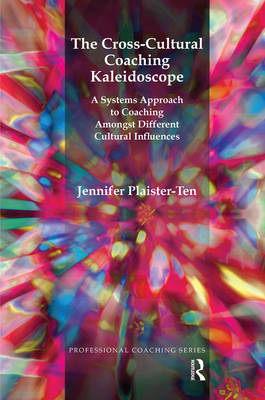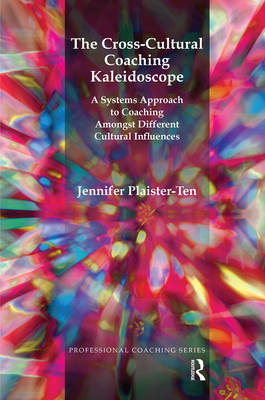
- Afhalen na 1 uur in een winkel met voorraad
- Gratis thuislevering in België vanaf € 30
- Ruim aanbod met 7 miljoen producten
- Afhalen na 1 uur in een winkel met voorraad
- Gratis thuislevering in België vanaf € 30
- Ruim aanbod met 7 miljoen producten
Zoeken
The Cross-Cultural Coaching Kaleidoscope
A Systems Approach to Coaching Amongst Different Cultural Influences
Jennifer Plaister-Ten
€ 168,95
+ 337 punten
Uitvoering
Omschrijving
Coaching has emerged from a Western, largely Anglo-American, perspective that may not be appropriate across cultures, given the multi-cultural nature of societies and workplaces today and the working practice of virtual teams. This has repercussions for the coaching profession. There is little knowledge about the constituent factors of cross-cultural coaching; or the attitudes, skills and knowledge required to practice in a global market. Therefore, there is little sharing of best practice that in turn has an impact upon coaching competency. This book shows a unique approach to describing the impact of culture in the coaching relationship. It demonstrates how culture can affect our perceptions, thoughts and emotions, influence our choices and impact our behaviour. It identifies the need for the coach to become adept at raising awareness of cultural influences and to reframe psychological constructs often thought to have universal meaning; such as responsibility.
Specificaties
Betrokkenen
- Auteur(s):
- Uitgeverij:
Inhoud
- Aantal bladzijden:
- 170
- Taal:
- Engels
- Reeks:
Eigenschappen
- Productcode (EAN):
- 9780367101381
- Verschijningsdatum:
- 5/07/2019
- Uitvoering:
- Hardcover
- Formaat:
- Genaaid
- Afmetingen:
- 157 mm x 234 mm
- Gewicht:
- 453 g

Alleen bij Standaard Boekhandel
+ 337 punten op je klantenkaart van Standaard Boekhandel
Beoordelingen
We publiceren alleen reviews die voldoen aan de voorwaarden voor reviews. Bekijk onze voorwaarden voor reviews.











